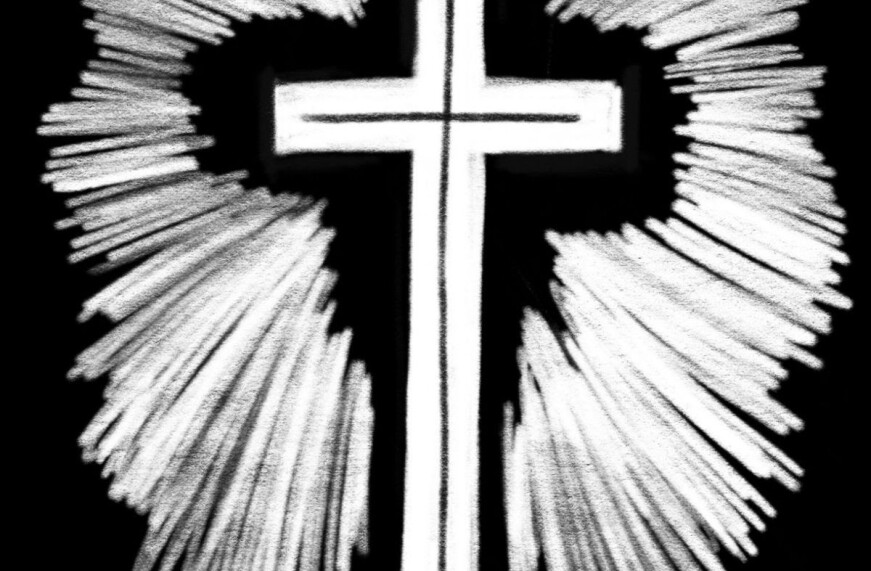You can listen to the reading and reflection by clicking here.
Isaiah 58.1-10
Shout out, do not hold back! Lift up your voice like a trumpet! Announce to my people their rebellion, to the house of Jacob their sins. Yet day after day they seek me and delight to know my ways, as if they were a nation that practiced righteousness and did not forsake the ordinance of their God; they ask of me righteous judgments, they delight to draw near to God.
“Why do we fast, but you do not see? Why humble ourselves, but you do not notice?” Look, you serve your own interest on your fast day, and oppress all your workers. Look, you fast only to quarrel and to fight and to strike with a wicked fist. Such fasting as you do today will not make your voice heard on high. Is such the fast that I choose, a day to humble oneself? Is it to bow down the head like a bulrush, and to lie in sackcloth and ashes? Will you call this a fast, a day acceptable to the Lord? Is not this the fast that I choose: to loose the bonds of injustice, to undo the thongs of the yoke, to let the oppressed go free, and to break every yoke? Is it not to share your bread with the hungry, and bring the homeless poor into your house; when you see the naked, to cover them, and not to hide yourself from your own kin?
Then your light shall break forth like the dawn, and your healing shall spring up quickly; your vindicator shall go before you, the glory of the Lord shall be your rear guard. Then you shall call, and the Lord will answer; you shall cry for help, and he will say, Here I am. If you remove the yoke from among you, the pointing of the finger, the speaking of evil, if you offer your food to the hungry and satisfy the needs of the afflicted, then your light shall rise in the darkness and your gloom be like the noonday.
I find this passage both humbling and empowering. The prophet seems to be mocking a somewhat whiny people—“Why do we fast” they say to God, “and you do not see.” The prophet is setting up mirror for the crowd, saying listen to yourself, you are disappointed in God for not doing things your way. I can relate! I find myself sometimes thinking, aren’t I doing all the things? The praying, the church-ing, the caring…that’s the stuff, right?! Yet still, I struggle, still I have worries, losses, insecurities, and pain; still somedays I feel so tired and worn down. And especially now, in this pandemic I find myself in this place quite a bit. Throughout the pandemic I have continued to pray, tried to be faithful, kept serving my patients at the hospital; yet still I am separated from family and friends, still I am experiencing loss, still I am exhausted. This is so unfair!
The prophet responds…”Look, you serve your own interest on your fast day.” Your dedication is self-centered, your worship is ego-driven. It sounds a bit harsh, but I think actually this is quite an easy trap to fall into. Fasting is not appearing a certain way before God or before others or before ourselves in order to receive something of our choosing. Spiritual practices are not transactional arrangements. The prophet is calling their listeners to take a look at their own hearts—what is your motivation. Why are you doing this—what is it actually for? And I think it’s a good lesson or even challenge to for us to consider. When we think of the spiritual practices we chose this Lent, do they have anything to do with anyone else besides ourselves? The prophet guides us further, explaining the kinds of motivations he believes should be at the heart of worship and spiritual practice: to loose the bonds of injustice, to undo the thongs of the yoke, to let the oppressed go free, and to break every yoke? Is it not to share your bread with the hungry, and bring the homeless poor into your house; when you see the naked, to cover them, and not to hide yourself from your own kin?
So maybe we can ask ourselves, what is the true intention behind our spiritual practices this year? If we notice they are mostly about myself getting closer to God, or myself simplifying, or myself finding some peace; maybe we contemplate how these practices also may impact the world around us. How prayer can change the decisions we make, or our kindnesses or generosity towards others. How simplifying our life, may create more for us to offer those in need. How seeking peace for myself can make me more patient, and more aware of the world around me. We can expand our vision of these practices so that our intentions reach the world around us.
Our spiritual practices or Lenten practices are for this, for cultivating not only our spirits, but also our choices, our priorities, our vision of the world so that we might be people who create the Kin-dom of God. When we do these practices, we are not making deals with God or expecting God to make our lives easier because of our dedication; we are hoping to be shaped and molded by God, better equipped to endure the difficulties that come; wiser, braver, more awake to injustices, more prone to act—and all of this, ultimately, bringing us most alive. For as the prophet promises, when we live into this just, free, equitable and connected vision of community “Then, then your light shall break forth,” healing springs up, and God will be close saying, “Here I am.”



